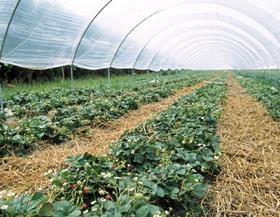
A study of the UK fresh produce scene by market analyst Plimsoll has found that there are now 61 companies that fall into the category of 'zombie businesses', existing simply to pay off debts and survive.
David Pattinson, author of the new Plimsoll Analysis, noted that these groups were 'in a state', posting growing losses and increasing debts despite an obvious freeze in the credit market.
'They are zombie businesses with debts an average of 49 per cent of turnover – they exist to service their out-of-control liabilities,' Mr Pattinson explained. 'Many are also using their suppliers to finance their growing losses, taking twice as long to pay their bills as the industry average of 38 days.'
There are many other problems that these zombie companies are facing, he said, as they continue to fall behind with productivity well below the industry average. High cost bases mean that investment plans have been 'mothballed', leaving aging assets that further restrict their ability to compete.
'The first thing to do is sort out their immediate finances. They have to convince their banks and suppliers to keep supporting them or not pull the plug,' Mr Pattinson noted. 'If they can pull that off then the hard work really starts. They urgently need to stem their losses and control costs – the longer it takes them to address these issues, the harder and less likely it is they will ever fix them.'
Mr Pattinson pointed to some attractive takeover targets hidden among the zombie groups, opening the door for shrewd investors to pick up a bargain and turn around a company's fortunes, but noted that many would be unable to attract a new buyer.
'Most have simply had their day and a combination of aging assets, rising losses and increasing debts mean they are unlikely to attract a suitor before the receivers are called,' he added. 'They will be forced back into negotiations with their lenders to buy more time but their future doesn't look good.'



